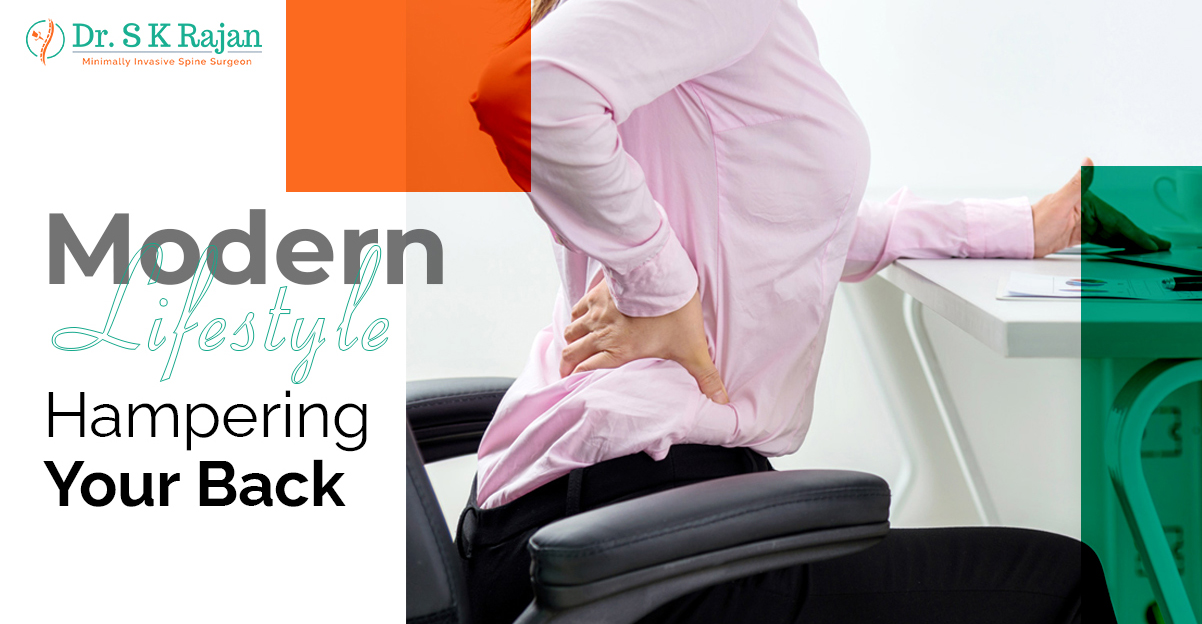
One of the most often reported health problems among American adults is back pain, and its prevalence increases with age. Back pain can significantly impact your quality of life by causing you to lose sleep, rely excessively on painkillers to get through the day at the office, or cut back on your normal activities.
Rather than relying on painkillers indefinitely, you should investigate other potential causes of your back discomfort. Without resorting to invasive procedures or artificial means, your condition may improve more than you think.
Many workers in the United States spend many hours a day confined to their seats. Long periods of sitting are harmful to your health and spinal column. Herniated discs and pinched nerves are two causes of back discomfort that can be exacerbated by prolonged sitting. Muscle fatigue and back pain are other side effects of prolonged sitting. As a result, you should periodically get up to stretch your legs and back.
Back discomfort can also be caused by not being physically active enough. The muscles and the spine are both strengthened and kept flexible by regular exercise. Back discomfort can be alleviated with light exercises like swimming, walking, or yoga. Check with your back pain doctor to discover whether you are healthy enough to begin an activity regimen.
The prevalence of obesity is increasing, making it a major health issue worldwide. Chronic back pain has been linked to obesity in several studies. High levels of obesity were related to severe lower back pain in a 2016 study of 820 males.
Overweight people put additional pressure and strain on their joints. Obesity is a risk factor for osteoarthritis, and the extra weight stresses your spine and joints. The cartilage between the joints breaks away in osteoarthritis, resulting in bone rubbing on bone. Experiencing pain and stiffness as a result of this is normal.
Getting by on fewer hours of sleep here is tempting. It's easy to prioritize getting some sleep throughout the day over meeting your work, family, and social obligations. However, if you have chronic back pain, you already know that getting enough sleep is crucial.
Not getting enough sleep triggers the release of stress hormones that tighten muscles and reduce the body's ability to withstand pain. You can keep these problems at bay by regularly giving your body the rest it needs. Fixing sleep issues like insomnia may require adjusting your nighttime routine.
Your risk of developing back discomfort increases if your work involves heavy lifting, stooping, or twisting or if you engage in other repetitive actions. You are also in danger if your employment requires you to stand or sit for long periods.
Slouching at your desk or not maintaining an upright position can strain your muscles and lead to back pain. Please use a chair that provides lumbar support when working at your desk. Ensure your computer screen is at eye level, so you're not always craning your neck. Stay away from the uncomfortable habit of crossing your legs. Just remember to keep your bare feet on the floor at all times. There will be less pressure on the spinal column as a result of this.
Inflammation in the body is worsened by diets high in refined carbohydrates like flour and processed foods. Back pain and inflammation have been linked to a diet high in refined carbohydrates, sugar, and processed meats.
If you want to determine if your diet is helping or hurting you, cutting out red meat and increasing your intake of plant-based proteins like fish and skinless chicken may be the way to go. Some nuts, seafood, avocados, and olive oil include healthy fats that can help reduce inflammation and pain.
One study found that smokers were 2.5 times more likely to report persistent back pain than those who did not smoke. In addition to increasing your chance of osteoporosis, smoking also slows recovery and raises your risk for degenerative disorders. Each of these issues can potentially make the agony that much worse.
Never put a strain on your back by lifting improperly. Make sure to pick up everything light enough, too. Recognize your limitations. When you must raise something, do so with your legs and maintain the load close to your torso.
Get in contact with the pros for an assessment of your back discomfort. Call your physician's clinic or submit a request for an appointment online today to set up a consultation.